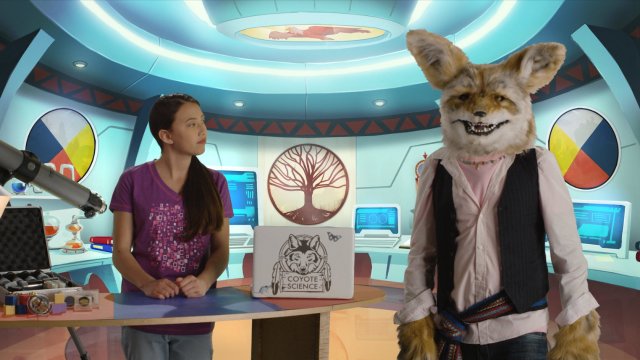To tackle a problem as large as climate change, we need both science and Indigenous wisdom, says environmental activist Hindou Oumarou Ibrahim. In this engaging talk, she shares how her nomadic community in Chad is working closely with scientists to restore endangered ecosystems — and offers lessons on how to create more resilient communities.
Tag Archives: science
Module 3, Post 2: Aboriginal Perspective in Science
Highlighting Aboriginal perspective in the classroom seems like an easy first step for teachers. Some of the unease for teachers remains in differentiating between when we are highlighting culture and when we are teaching religion, an uncomfortable distinction for many teachers, which often leads to simply ignoring the topic. An easy first step seems to be the integration of the Aboriginal perspective in the science classroom. APTN Kids provides teachers with bilingual links to powerful, research-based programming like Coyote Science that demonstrates that including the Aboriginal perspective in classrooms is as fundamental as the characters in the story. When Coyote helps to explain science concepts, includes a joke of the week and the medicine wheel is included in the set design, students see a valuable perspective. This is a good example of what happens when the First Nations perspective is woven through the resources used in the classroom. Great to supplement teachers who need a little more support in teaching indigenous content in the class.
APTN Kids: http://aptn.ca/kids/
Coyote Science: http://aptn.ca/coyotescience/

Indigenous Perspectives in Science M2P1
First Peoples’ Science resource
I found this through my district’s Indigenous teaching resources and it makes a great connection to science 6 and the body systems. This gets us to connect our body systems to that of a bear which really reminds me of Dr Lee Brown’s interview were he talks about the idea of “all my relations” and the Indigenous perspective that we are all connected, and that we are all connected to the land. It’s got other resources in it including regarding Climate which would be perfect for Science 7.
Module 1 Post 1: Traditional Ecological Knowledge
First Nations Education Steering Committee (FNESC) is a Vancouver-based organization dedicated to creating resources and supporting First Nations learners in British Columbia. The specific resource I am referencing is “Science First Peoples” — a teacher resource for understanding and implementing First Peoples’ scientific knowledge for grades 5-9. FNESC works diligently to ensure their resources align well with the B.C. curriculum while also delivering curricular competencies in a way that recognizes and embodies Indigenous ways of learning. Specific local examples, stories, and materials are used throughout the guide to make for a more interconnected learning journey.
